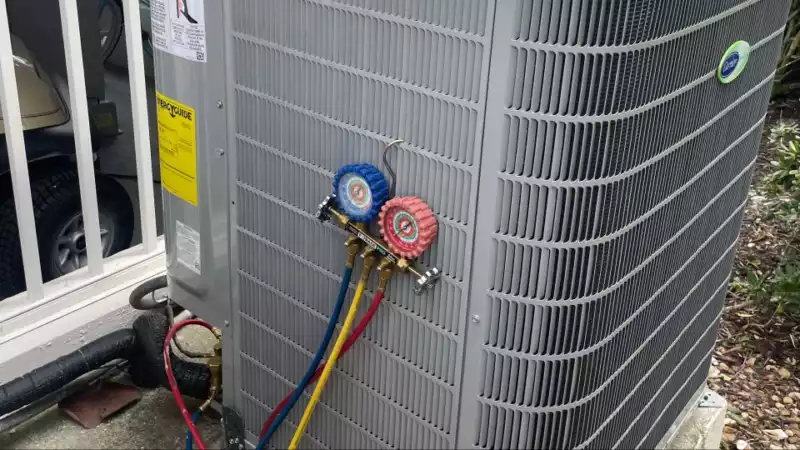7 Signs to Replace Your AC for a Cooler Home
7 signs that your air conditioning system might be nearing the end of its lifespan.

Florida's heat is no joke, and a reliable air conditioning system is essential for a comfortable home. But how do you know when it's time to trade in your trusty AC unit for a new one? Here are 7 signs that your system might be nearing the end of its lifespan:
Age: The average AC system lasts around 10-15 years. If your unit is pushing past this mark, it's wise to start thinking about replacement. Regular maintenance can extend this lifespan, but eventually, all machines wear down.
Rising Energy Bills: Is your wallet feeling the strain? An inefficient AC system will work harder to keep your home cool, leading to higher energy costs. Newer models boast significant improvements in efficiency, so a spike in your bills could signal upgrade time.
Frequent Repairs: If your AC seems to need a repair person more than a friendly neighbor, it might be time to cut your losses. Constant repairs can become expensive, and they're a sign that your system is on borrowed time.
Inconsistent Cooling: Is your home turning into a patchwork of hot and cold zones? This could indicate failing parts or an undersized unit. A new AC system can ensure consistent comfort throughout your entire house.
Warning Signs: Listen to your AC! Unusual noises, strange odors, or leaks could all be signs of internal trouble. Don't ignore these warnings – address them with a qualified technician who can advise you on repair or replacement.
Poor Air Quality. If you start to notice excessive dust, high humidity, or mold odors, first check your filters to make sure they aren’t clogged. If this doesn’t solve the issue, you may want to replace your unit for better indoor air quality.
R-22 Freon Usage. As of January 2020, production of R-22 refrigerant has been phased out. If your AC system uses R-22 Freon, it's time for a replacement. R-22 is a refrigerant that is no longer being produced or imported due to its harmful environmental effects. Modern AC systems use more environmentally friendly refrigerants.